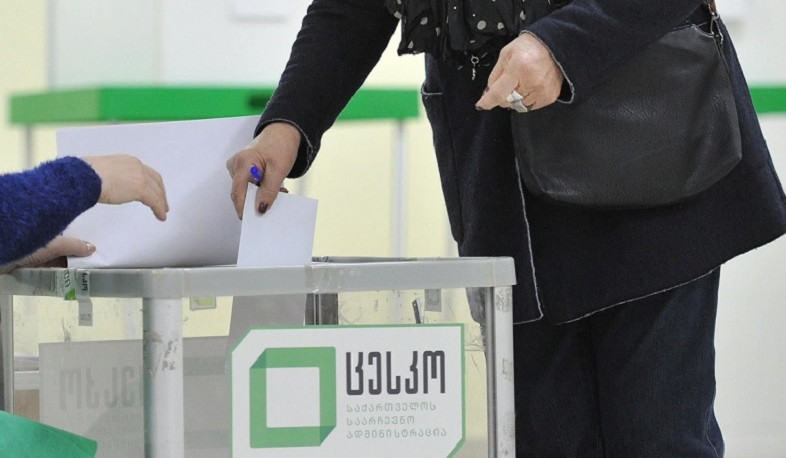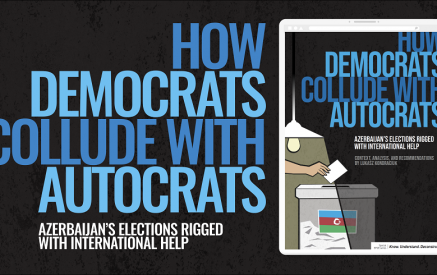Statement on Georgia’s Parliamentary Election
International Society for Fair Elections and Democracy (ISFED), a founding member of the European Platform for Democratic Elections (EPDE), launched a large-scale election observation mission on October 26. With around 1,000 observers inside polling stations, 235 observers stationed outside, and 45 abroad, was further bolstered by 73 observers at District Election Commissions and 85 mobile teams. Working alongside the “My Vote” coalition—a partnership of 30 Georgian non-governmental organizations—and the extensive monitoring efforts by the Georgian Young Lawyers Association (GYLA), Georgian civil society together formed an unprecedented election observation effort. The combined findings from these efforts revealed election day irregularities of an unprecedented scale, indicating highly organized fraud across the country.
ISFED asserts that the results of the October 26 parliamentary election do not accurately represent the preferences of Georgian voters. Although the Parallel Vote Tabulation (PVT) results match those announced by the CEC, this verification method cannot validate the electoral process due to significant flaws in both pre-election and election day procedures that impeded voters’ ability to express their free choice.
ISFED’s findings indicate that 91% of polling stations in their selection reported problematic activities around the exterior of polling locations. Voter tracking at the outside perimeter of the polling stations was prevalent, observed in 31% cases, and voter transportation to polling sites was reported at 19% of observed polling stations. ISFED also noted alleged voter bribery in the vicinity of 13% of polling stations, and recorded verbal or physical confrontations or threats at 11% of polling stations’ perimeters.
Read also
At 9% of polling stations, the secrecy of the vote was not upheld, and issues with the inking procedure were also reported at 9% of locations. Observers faced numerous challenges, including restrictions on their rights, intimidation, and instances of verbal and physical violence, with some even being expelled from polling stations. Additionally, several polling stations saw incidents of mass ballot stuffing and multiple voting, indicating severe procedural breaches.
The “My Vote” coalition of 30 Georgian civil organizations observed the October 26 parliamentary elections across all Georgian districts.
The coalition stated that analyzing the pre-election environment, the fraud schemes utilized on election day, and the unprecedented impact on voter will, along with incidents of violence, that the preliminary results published by the Central Election Commission do not reflect the will of the citizens of Georgia. The group stated that election day was marked by serious violations, revealing a coordinated scheme to influence the final outcome.
About 2,000 observers, including 150 stationed abroad, monitored around 1,200 polling stations nationwide, as well as at the Central Election Commission (CEC). Additionally, 133 mobile teams operated across 73 districts.
According to “My Vote”, there were 347 reports of voting without inking, along with 89 reports indicating violations of voting secrecy. Observers recorded 341 instances of unauthorized individuals present in polling areas, and there were 96 cases of physical confrontations, threats, or violence. Additionally, 163 reports documented restrictions on the observation rights of “My Vote” observers.
Observers noted disruptions to the voter verification system. In the first half of the day, voters were often given multiple ballots, some pre-marked for the ruling party. Evidence suggests that prior reports of ID card confiscation and collection of voter’s personal data were part of this scheme, securing decisive votes for the ruling party.
Throughout the day, observers faced unprecedented pressure, including physical attacks, verbal abuse, intimidation, and unjust expulsions from polling stations. Many observers were unable to monitor the voting process, with some needing evacuation, and police involvement in these expulsions made effective observation impossible.
Journalists faced violent attacks that hindered their ability to report on fraudulent activities. Unauthorized individuals gathered at polling stations, displaying aggressive behavior towards voters and observers, while the ruling party appeared to rely on criminal groups to intimidate voters. Throughout the day, neither the election administration nor law enforcement took action in response to the blatant violations of the law.
The „My Vote” coalitions reported that polling process was severely disrupted at polling stations outside Georgia due to inadequate space and insufficient registrars. Many voters waited in line for hours, resulting in numerous individuals being unable to cast their votes and depriving citizens abroad of their voting rights.
Georgian Young Lawyer’s Association (GYLA) monitored the parliamentary elections on October 26, 2024, with several hundred observers, and reported that the voting day was marked by significant violations, characterized by inequality, violence, and tension.
The election process encountered serious issues, particularly regarding basic voting procedures. Widespread inking violations permitted unverified voters to access polling stations, and there were instances of voters with existing ink traces casting multiple votes.
GYLA is particularly requesting clarification from the Central Election Commission on how the CEC prevents the activation of duplicate voter lists across different precincts, especially since the full list of voters is loaded into verification devices. This inquiry is particularly important given the serious violations related to the inking procedures.
GYLA’s observers faced numerous challenges, including threats and interference from election commissions. Reports indicated aggressive responses when concerns about inking violations were raised, leading to the expulsion of some observers.
Additionally, ballot secrecy was compromised by video cameras installed apparently by the “Georgian Dream” party, raising concerns about undue influence. The presence of unauthorized individuals accompanying voters further undermined the integrity of the voting process.
Throughout the day, incidents outside the precincts included tensions, tracking of voters, and obstruction of journalists. There were also reports of inadequate commission member performance, illegal campaigning, and issues related to electronic technologies. After the precincts closed, further violations emerged, such as ballot invalidation, improper sealing of the record book, and restricted access to electoral documentation.
European Platform for Democratic Elections (EPDE)




















































